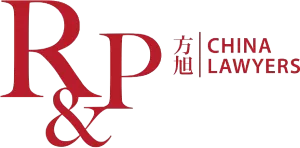- in European Union
- with readers working within the Media & Information industries
- within Litigation, Mediation & Arbitration, Privacy and Tax topic(s)
The attorney-client privilege pertains to the confidential exchange of information between an attorney and their client with the intention of seeking legal counsel. Closely related is the work product doctrine, which protects materials an attorney prepares in anticipation of litigation. Both attorney-client privilege and the work product doctrine prevent the disclosure of certain information to opposing parties during discovery or under government investigation unless limited exceptions apply.
In the United States, preserving privilege during internal investigations is crucial due to the risk of ensuing litigation and the extensive discovery rights of the opposing party. The intricacy intensifies in cross-border investigations, particularly when navigating the divergence between the U.S.'s common law and China's civil law systems, with their distinct evidentiary and procedural standards.
This briefing will explore the critical aspects of preserving attorney-client privilege during China-based internal investigations. A cornerstone of our examination is the landmark case Wultz v. Bank of China where a Chinese entity sought privilege before a U.S. court. The significance of this case rests on the applicable evidence law, whether China has an attorney-client privilege and the role of internal legal counsel in Chinese companies. Even though the Bank of China is a Chinese enterprise, the holding and reasoning of the case would similarly apply to other China-based internal investigations for American companies.
In Wultz v. Bank of China, the Wultz family sued the Bank of China for allegedly facilitating substantial resources to a terrorist group, violating the Antiterrorism Act. The litigation hinged on the family's demand for the Bank to disclose documents tied to anti-money laundering and compliance procedures stored in China. The Bank of China resisted this by invoking the attorney-client privilege and the work-product doctrine. The Bank further argued that even if the documents have strong ties to China, U.S. attorney-client privilege law should apply, as applying the Chinese law might contravene U.S. public policy. The family contested this claim and filed a motion to compel the Bank to release the sought-after materials to the Federal District Court for the Southern District of New York (SDNY).
- MAINTAINING CONFIDENTIALITY IN CHINA
The concept of attorney-client privilege and the work-product doctrine, both rooted in common law, do not have direct equivalents in China, a civil law jurisdiction. The Federal Court affirmed this position in Wultz v. Bank of China. In certain circumstances, Chinese law permits compelling an attorney to disclose a client's confidential information or communication in court. Moreover, documents labeled as "confidential and privileged" are not necessarily accorded special status or protection under Chinese law before authorities, courts, or opposing parties.
Although the lack of such privileges in China might raise concerns, particularly in the context of internal investigations, it is not as daunting as it initially appears for two main reasons:
- Chinese law does include a similar notion of a "duty of confidentiality", which obliges practicing attorneys to protect their client's secrets. However, this duty does not necessarily extend to privilege in court proceedings.
- A key rationale for the strong emphasis on privilege in common law jurisdictions like the U.S. is to counterbalance the expansive discovery rules. In China, such discovery practices are almost non-existent, so concerns regarding "privileged" documents being accessed by opposing parties are less common.
- Duty of Confidentiality
The Chinese legal system establishes a duty of confidentiality rather than an attorney-client privilege. As with many civil law jurisdictions, this duty stems from the notion of professional secrecy, enshrined in both statutes and ethical codes. For instance, Article 38 of the Lawyers Law (2018) provides, "A lawyer must keep confidential any circumstances and information about the client and others that they learn in the course of practicing law, which the client or others do not wish to be disclosed." However, exceptions are made if the client is planning to commit a crime that threatens state security, public safety, or seriously threatens the safety of others.
In China, this duty of confidentiality is primarily viewed as an ethical obligation to the client, rather than an evidentiary protection akin to the attorney-client privilege or the work-product doctrine in other jurisdictions. Consequently, provisions in other laws, such as those governing civil and criminal procedures, competition, or anti-money laundering, might easily supersede this duty.1 Nonetheless, unlawful breaches of a confidentiality obligation can result in disciplinary actions against the attorney. These sections may include suspension, disbarment, fines, or even criminal sanctions, particularly when state secrets are disclosed. However, such disciplinary actions are seldom seen in practice, and civil or criminal liabilities are also rare.
Another key distinction between the duty of confidentiality and attorney-client privilege is that the former pertains to "information learned in the course of practicing law." Hence, confidential information does not necessarily have to be shared in the form of a confidential communication for purposes of seeking legal advice or in anticipation of litigation.
In contrast to privilege in the U.S., the duty of confidentiality in China generally binds external lawyers only. Various parties may participate in an internal investigation, but most are not subjected to the same confidentiality obligation. Consequently, it is sensible to engage external Chinese lawyers early in an internal investigation. Here is a brief exploration of the confidentiality obligations of different stakeholders:
- In-House Lawyers: If not duly registered with P.R.C.'s Ministry of Justice or not admitted to the local bar, in-house lawyers are not subject to the same level of confidentiality obligations as external lawyers. This distinction arises because many in-house lawyers are not considered "qualified" under P.R.C. laws. In fact, the in-house department in China is primarily perceived as a business unit. Many believe their work is conducted as part of routine business operations, just as it is for seeking legal advice. The structure of the legal and compliance departments, along with their internal reporting channels, supports this view. In Wultz v. Bank of China, the Court held that even if U.S. evidence law were applicable, the privilege would not extend to in-house lawyers in China as they are not licensed attorneys.
- Non-Legal Professionals: Professionals such as accountants or tax consultants, even when advising on legal issues related to their fields, are unlikely to be covered under the confidentiality obligations. Therefore, entering confidentiality agreements with third parties (and with limited carveouts) is recommended.
- Law Enforcement Agencies: Authorities in China have broad powers to seize documents, including those that might be considered privileged in other jurisdictions. This can be done pursuant to a search warrant or court order. Enforcement agencies generally must maintain the confidentiality of information or evidence collected during internal or external investigations. There is some risk regarding inadvertent waiver, which will be elaborated upon later in this briefing.
The duty of confidentiality in China is more limited and constrained. Consequently, some commentators have posited that Chinese lawyers cannot protect their clients' confidential information. These concerns might be overstated. In practice, courts and law enforcement agencies generally show deference to the lawyer's duty of confidentiality. Moreover, demands for lawyers to provide client communications or work products are rare, unless a case pertains to national security, even under a broad definition. Credit again goes to the lack of discovery.
Additionally, from a legal development standpoint, the protection of confidential communications between attorney and client have been strengthened in recent decades. Article 49 of the 2007-amended Lawyers Law removed the obligation for lawyers to disclose all material facts related to a case to the court. In other words, attorneys may now withhold certain confidential information during litigation. Prior to the revision, failure to disclose all facts could render a Chinese lawyer liable for concealment. In criminal proceedings, Article 37 of the 2012-amended Criminal Procedure Law stipulates that all meetings between an attorney and their client must remain unmonitored. Before this amendment, meetings could be subject to surveillance by the detention center police, either physically or electronically, with the authority to prevent lawyers from discussing specific case details. Nonetheless, these enhanced protections still do not reach the same standards of protection that the U.S. attorney-client privilege affords.
- Lack of Discovery
Unlike the U.S. legal system, Chinese law does not have discovery rules. Consequently, there is less emphasis on privilege protections. In civil litigation within China, parties typically produce their own evidence. Chinese courts predominantly adhere to the burden of proof principle of "who claims, who proves" – encapsulated in the Latin maxim "semper necessitas probandi incumbit ei qui agit."
The absence of discovery renders it difficult for an opposing party to access privileged documents, unless mandated by a court order or initiated through a judicial investigation. This procedural gap poses challenges for multinational corporations engaged in litigation in China as a plaintiff. For example, the lack of discovery hampers efforts to secure adequate remedies in cases of intellectual property rights infringement. Without access to an opponent's financial records or internal documents, ascertaining the extent of profits accrued from the infringement becomes a formidable task. Similarly, pursuing civil cases involving covert activities by the defendant, such as fraud or civil conspiracy, becomes equally challenging.
In the face of these challenges, the Chinese judicial system has recently taken a significant stride forward. In the revised PRC Rules of Evidence (2020), courts no longer adhere rigidly to the principle of "who claims, who proves." They can now issue a "Document Production Order" at a party's request, permitting them to access documents necessary to prove relevant facts or materials for the ruling – though at very high thresholds. Only certain categories of documents can be requested. While this may resemble American style discovery, it remains a relatively new mechanism in China and is not standard practice. Typically, parties might resort to the Document Production Order under specific scenarios, such as obtaining financial records to calculate damages. Overall, the Document Production Order appears to have had limited relevance to internal investigations and has not been a major concern for losing confidentiality.
In general, the lack of discovery in Chinese law can be advantageous during internal investigations. While the duty of confidentiality might not shield information against governmental or judicial scrutiny, the lack of discovery does inhibit the opposing party's capacity to procure the evidence.
While the prevailing perceptions suggest that discovery is absent in the Chinese legal framework, U.S. Court perspectives may present complications. In Wultz v. Bank of China, the Federal Court found that evidence disclosure requirements in Chinese law might not be inherently less rigorous than those in the U.S. This is because, as explained earlier, a Chinese court can theoretically compel lawyers — individuals knowledgeable about the case — to give testimony in court, according to Articles 70 and 75 of the PRC Civil Procedure Law. While expert testimonies indicated that in practice, PRC courts would not compel lawyers to disclose confidential information in a civil case, the Federal Court found that no explicit provision in Chinese law prevents such document disclosures. Consequently, the Federal Court remained unconvinced of the absence of a discovery mechanism in China and posited that this mechanism might be more potent than its U.S. counterpart. A pivotal oversight, however, is the Federal Court's failure to differentiate between China's inquisitorial court-led investigation and the U.S.'s adversarial system, where the opposing party orchestrates discovery.
In summary, concerns regarding the confidentiality of internal investigations for litigation in China are both understandable but may not be as important as commonly believed - primarily due to the lack of discovery and the court's recognition of Chinese external lawyers' confidentiality obligations. However, complexities emerge in transnational contexts, where U.S. courts' interpretations of the Chinese legal framework may deviate from the Chinese perspective, especially when there's a discrepancy between written Chinese law and established practices.
- PRESERVING PRIVILEGE IN THE U.S.
In this section, we will discuss issues related to preserving attorney-client privilege in a China-based internal investigation when facing a U.S. court. The key to success lies in establishing a strong connection to the U.S., and thus allowing the more favorable U.S. evidence laws to apply, rather than relying on Chinese law where such privilege is not recognized.
- Upjohn Warnings
As is well known in the United States, to maintain attorney-client privilege, a proper Upjohn warning must be given. This entails clarifying to the witness that the attorney represents the company, rather than the witness personally. Moreover, the witness should be informed that while their conversations remain confidential and are protected under the attorney-client privilege, it is the company, and not the individual, that retains this privilege (and which can waive this privilege unilaterally).
It is good practice to issue a warning akin to the Upjohn warning irrespective of whether the matter seems bound to be resolved exclusively in China or lacks any immediate relevance to U.S. regulations or potential litigation. Although issuing such a warning might not always be necessary and could induce unease or apprehension in the interviewee, the decision to forgo this warning should be made with considerable caution.
- Touch-Base Test
U.S. courts apply the "touch-base" choice-of-law test to determine which nation's privilege laws should apply when evaluating the confidentiality of attorney-client communications. If the communication in question relates to U.S. legal proceedings or involves advice regarding American law, American law is applied. Conversely, if the communication has no substantive tie to U.S. proceedings or legal issues, the foreign nation's privilege laws are preferred. The core concept of the test is that the jurisdictional choice is based on the most predominant or compelling interest in the confidentiality of the communication.
In the Wultz v. Bank of China, the Court applied the "touch base" test and determined that American privilege law was applicable to all documents produced after the threat (or demand letter) that related to it. In contrast, documents produced before the threat or unrelated to it were governed by Chinese law.
- U.S. Lawyer
For a communication to be deemed confidential, it must be made to an individual admitted to the bar of a U.S. court. In China, it is commonplace for internal investigations to be spearheaded or influenced by compliance or internal audit teams, which may not necessarily comprise external lawyers, let alone those qualified in the U.S. These in-house counsels may inadvertently not be considered attorneys to protect the privilege. Given this context, it becomes paramount to involve a U.S.-qualified attorney at an early stage to ascertain that communications are intended for seeking legal advice. This requirement stipulates that such exchanges be directed towards a lawyer or an individual working under a lawyer's direction. U.S. and Chinese law firms have successfully established collaborative frameworks to facilitate this. The crux of the matter lies in the timely engagement of these professionals, especially when potential U.S. regulatory or litigation risk is identified.
- Third Parties under Direction
The attorney-client privilege does not require that communications be made exclusively with an attorney; rather, it emphasizes the intent behind the communication to enhance the communications between the attorney and the client. Engaging third parties, like specialized accountants or IT security experts, can be both necessary and advisable. However, to preserve the privilege, it is crucial to establish clearly that these professionals are working under the attorney's direction.
- Recordings
A commonly recommended best practice to maintain privilege in practical guides is to communicate sensitive information via phone or Zoom. While this method might be preferable to producing written communications, it is imperative to recognize the prevailing custom in China: procuring recordings, either with or without the other person's knowledge, to serve as evidence. This practice stems from the fact that the concept of discovery is largely absent in China and such recorded evidence often proves crucial in, for instance, employee termination cases.
- P.R.C. Regulators
The expansive authority of Chinese regulators to solicit documents poses a potential risk of inadvertently waiving the attorney-client privilege. Nonetheless, contrary to the assumption that most administrative investigations in China might be perceived as national security concerns in the current climate, it has been observed that regulators infrequently request attorneys to disclose what would conventionally be deemed confidential information.
- CONCLUSION
Understanding the differences between US common law attorney-client privilege and confidential treatment of information by lawyers in China is critical when conducting a cross-border internal investigation. The complexities are ever present, but the right balance of attorneys in different jurisdictions makes a path forward possible. Proper preparation on the front end is key when the investigation is getting started.
Footnote
1 See, for instance, Anti-Monopoly Law (P.R.C) art. 50 (2022); Anti-Unfair Competition Law (P.R.C.) art. 14 (2019); Anti-Money Laundering Law (P.R.C.) art. 24 (2007).
The content of this article is intended to provide a general guide to the subject matter. Specialist advice should be sought about your specific circumstances.



